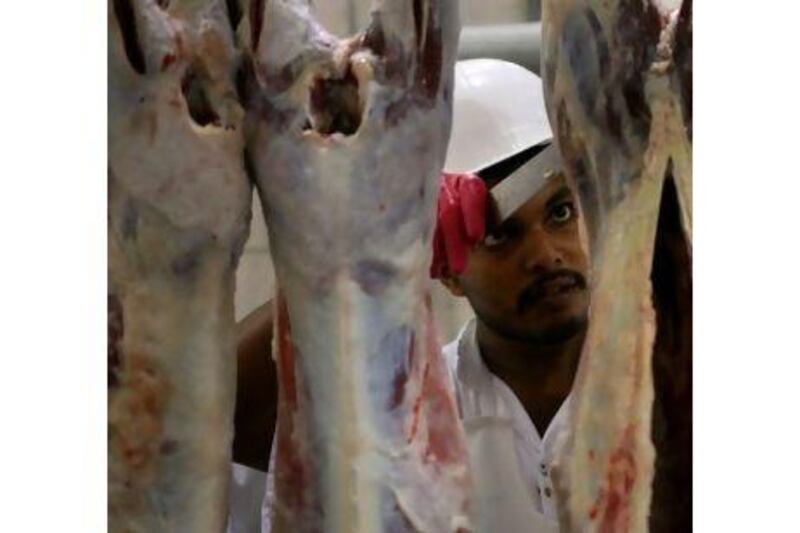DUBAI // Health experts say we should be eating less processed and red meat, as studies link them to an increasing number of cancers.
According to Leila Goharian, a registered dietician at the General Health Centre and a Right Bite nutritionist, while most people are aware that red meat is high in saturated fat and should be eaten sparingly, fewer are aware of increasing links to cancer.
In the past, red meat was considered a luxury, but as incomes have risen, so has meat consumption.
Consumers in the UAE eat 18 times more meat per capita than the global average, according to a study in 2009 by the Ministry of Foreign Trade.
Researchers are finding that eating red meat and processed meat is a possible risk factor for an increasing number of cancers, said Dr Arash Rashidi, the head of the research department at the National Nutrition and Food Technology Research Institute in Iran.
Dr Rashidi was speaking on the sidelines of the Middle East Vegetarian Group Congress in Dubai on Tuesday.
"There is convincing evidence for colon and rectal cancer," Dr Rashidi said, adding that studies had also looked at correlations between consumption of red meat and esophageal, lung, pancreas and endometrium cancer, but "more research is needed".
A report in 2007 from the World Cancer Research Fund and American Institute for Cancer Research collected hundreds of studies to identify whether certain foods could be linked with different types of cancer. It found both red meat and processed meat consumption increased the risk of colorectal cancer.
But, that does not mean kebab lovers have to cut out all meat. "This is a dose-dependent relationship," Dr Rashidi said.
According to study in 2006, eating 120 grams of red meat every day increases the risk of bowel cancer by 25 to 35 per cent.
Increased risk estimates for processed meat vary more widely, from nine to 36 per cent for a daily intake of 30g. Risk, though, is proportional to the amount of consumption.
The UAE's love of hamburgers and shawarma highlights the need for awareness. People were reluctant to give up meat, said Dr Rashidi.
"There is a real desire to eat meat," Dr Rashidi said, comparing it to smoking. "People can know it's bad for them, but still have a passion for it anyway."
There are multiple explanations for how red meat might be unhealthy. Cooking red meat has been found to generate cancer-causing compounds.
People who eat red meat are more likely to have high cholesterol and blood pressure. Red meat is high in nitrosamines, which are linked to some cancers, and its consumption may cause the body to increase its own production of nitrosamines.
But, like many bad habits, those who can afford to, do. Last year, meat and meat product imports reached US$973 million (Dh3.57 billion). In 2008, Meat imports jumped more than 47 per cent, dropping only 10 per cent after the recession.
"There's a huge increase in demand for meat from high-economy countries," Dr Rashidi said.
Consumers in the UAE spend an average of $420 per person a month on groceries, most of which goes to meat and poultry, the ministry's study showed.
The fault may not entirely be the consumers, said Ms Goharian. "There's a lack of options when it comes to food, so just to have a healthier choice is hard."





